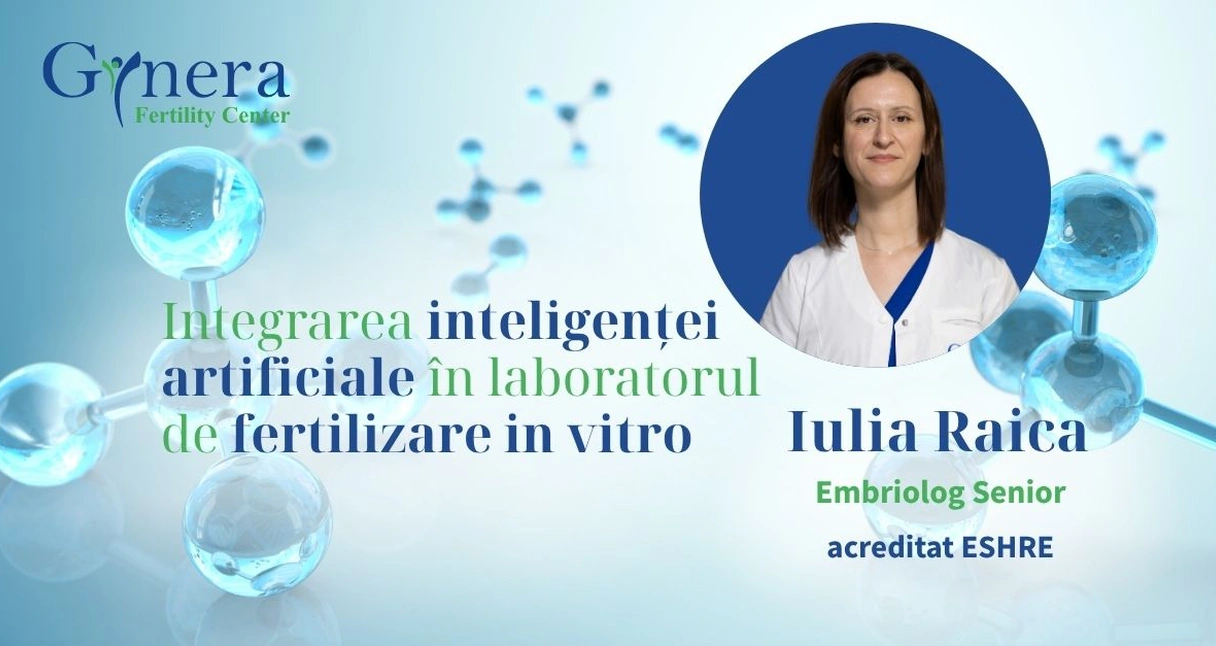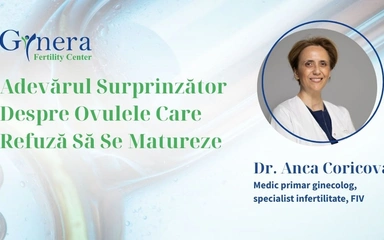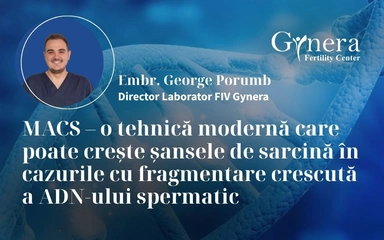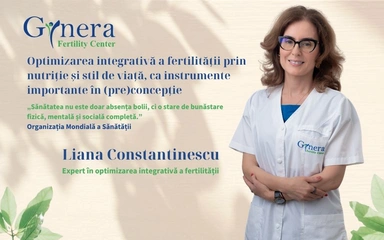Integrating artificial intelligence into the in vitro fertilization laboratory
Iulia Raica – Senior Embryologist, ESHRE accredited

According to the latest estimates, up to 186 million people worldwide are affected by infertility, and globally, more than 2.5 million in vitro fertilization (IVF) cycles are performed each year.
The goal of all specialists treating infertility is to develop and improve assisted reproductive technologies (ART), which include oocyte and embryo cryopreservation, preimplantation genetic testing (PGT), and embryo selection technologies based on morphological criteria — all of which have had a major influence on increasing clinical pregnancy rates over the past 40 years.
What is Artificial Intelligence?
In recent decades, assisted reproductive technologies have rapidly evolved and have been accompanied by advanced procedures such as intracytoplasmic sperm injection (ICSI), digital monitoring of embryo cultures through Time-Lapse systems (EmbryoScope) and PGT which can bring significant benefits in infertility treatments.
Artificial Intelligence (AI) has strongly influenced research in the field of in vitro fertilization and represents a general concept of automated evaluation of embryos and reproductive cells using machine learning or computer-based image analysis.
Many studies have analyzed the use of AI algorithms, particularly in embryo evaluation and selection. Both invasive and non-invasive methods are used to select the most competent gametes throughout the stages of assisted reproduction procedures, from fertilization, embryo development, implantation, and up to full-term clinical pregnancy.
Ultimately, everything depends on the quality of sperm and oocytes, in terms of their full maturity and normal genetic composition.
Applying Artificial Intelligence in Reproductive Medicine
Since artificial intelligence has gained an important role in assisted reproductive techniques, its use has been explored in nearly every aspect of infertility patient care, including:
- Identifying empty follicles or those containing oocytes
- Identifying markers of oocyte cytoplasmic maturity
- Predicting embryo developmental stages
- Assessing blastocyst competence for achieving a viable pregnancy
- Evaluating sperm morphology and blastocyst quality
- Embryo selection
- Optimizing ovarian stimulation protocols
- Quality control
- Automated semen analysis, sperm viability analysis, and DNA integrity assessment
- Estimating the impact of lifestyle and environmental factors on sperm quality and male fertility
Non-Invasive AI-Based Methods for Oocyte Competence Assessment
Non-invasive AI-based methods for assessing oocyte competence could become powerful selection and predictive tools to:
- Reduce the number of embryos created and discarded (which is especially important in countries with restrictions on surplus embryos)
- Reduce the number of embryos needing PGT
- In donor cycles, AI could become an objective tool for evaluating oocyte quality and its fertilization potential.
Advances in Culture Systems
The emergence of closed culture systems equipped with machine learning has allowed for precise evaluation of cell divisions, identification of normal division cycles, and distinctive abnormal markers impacting embryo viability.
For this purpose, these systems are associated with Time-Lapse microscopy, which enables continuous monitoring of embryo development, and most importantly, while maintaining stable incubator conditions. Other methods, such as AI-based analysis to predict embryo ploidy, are also currently being explored.
The Future: Fully Automated Embryology Laboratories
Furthermore, future technology envisions the complete automation of the embryology laboratory, through fully computerized control of gamete and embryo manipulation in a "microfluidic" system. This miniaturized system will be used for:
- Sperm sorting
- Oocyte fertilization
- Embryo cultivation
It will allow for the standardization of IVF procedures and reduce the variability observed with current techniques, while also enabling all procedures to be performed within a closed micro-system, with minimal intervention from the embryologist.
Why This Is the Future of Infertility Treatment
These innovative AI-based gamete and embryo processing and selection methods represent the future of infertility treatment because selecting the most competent embryos shortens the time to achieving a successful full-term pregnancy. For both clinics and patients, success means the birth of healthy children.



